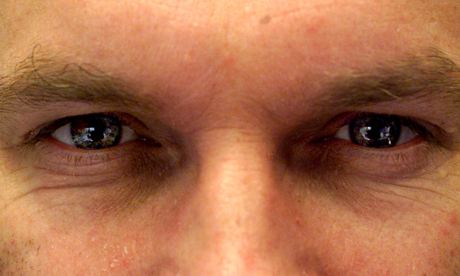
Oh Stephen, how could you? The saintly Stephen Fry at the weekend received a line of cubic cakes, each with a letter neatly arranged to spell out "thank you". Snap. Fry's 6.8 million Twitter followers got to share the moment, if not the cakes, and he included a witty caption – about how a companion had snatched one, ruined the effect and so messed with "my OCD eyes".
And then the world moved on. Except that, for me and millions of my fellow OCD sufferers, it didn't. Or rather, it couldn't. Today I will wrestle with the same irrational thoughts and terrifying visions that I have replayed through my OCD eyes for more than 20 years; the repetitive ideas and fears that have ruled and sometimes ruined my life since I was 19 (I'm now 42).
Because OCD is not, as Fry's tweet would nudge yet more people towards believing, a behavioural quirk. It's not an exaggerated love of order and hygiene. It's a disorder of thought: harrowing, distressing, torturing, impossible-to-shake thought. That's the O in OCD – obsession – and it's what causes most of the D from the same abbreviation. (It stands for disorder but means distress.) Ironically, the compulsions, the C in OCD, the most visible and least understood feature of the condition, are almost always what we do to make ourselves feel better. Compulsions are a response to an obsessive irrational thought.
So, while someone with OCD eyes might indeed be bothered by a disturbance in the neat arrangement of cakes, it's almost certainly not because they like them to be ordered. More likely, it's because they placed them in that precise way because that's the only way they have found (and they will have tried everything else) to ease the trauma of a persistent notion that, if they don't, their children will be killed in a car accident. Eat the cake and their kids die. That's the OCD eyes and the OCD brain.
This matters for two reasons. First: the more that OCD is cemented in the public consciousness as a trivial and superficial tic, the more that misleading impression damages vulnerable people. It takes real courage to confront mental distress and seek help. Yet when people with OCD do so, they often find bafflement and hostility, even from within the medical profession. If OCD is simply someone who washes their hands then why is this patient telling me of unwanted thoughts to hurt their children? If OCD is someone who lines up their DVDs in alphabetical order, then is this teacher who wonders if she knocked someone down in her car last night and compulsively calls hospitals to make sure she didn't, safe to carry on working? Those aren't hypothetical examples. Parents with OCD are separated from their families. Workers are suspended from their jobs, but not because they pose any threat. One of the defining features of obsessive thoughts is that they are unwanted; we don't act on them. They get treated in that way because their symptoms either weren't recognised as OCD or because the reality of OCD was blurred by the popular misconception.
Second: people with OCD get their information from the same sources. We believe OCD is something else. If OCD is angst about symmetrical cakes then what is wrong with me? Why can't I shake these crazy ideas about catching HIV from my cat? Why do I think about having sex with next door's rabbit? Those too are genuine OCD examples. And here's the killer line: they are the kind of weird thoughts that everybody has from time to time. OCD is when they get stuck.
Psychologists and psychiatrists can help people with OCD. But first people with OCD have to recognise that they have the condition, and be willing to seek that help. There are various reasons why, even though OCD typically strikes someone at 19, people with OCD do not go for help until they are over 30. One of those is that the OCD in their head doesn't match the OCD that people talk about. When one of those people is Stephen Fry, then it probably feels better to keep quiet and try to live with it for a bit more.
It feels odd to criticise Fry for his public statements on mental illness. The man has done more than most to encourage openness and debate. The blame is more ours, the people who suffer from OCD and who haven't talked about it, and who have allowed it to be defined by others. And the blame is yours: the people who don't have OCD but who do have weird, irrational intrusive thoughts. You, the man who gets the urge to jump from a bridge. You madam, who wonders what would happen if you were to turn the steering wheel into the oncoming traffic. If we with OCD knew that you had those thoughts too, then we would be a lot more open about our own.

